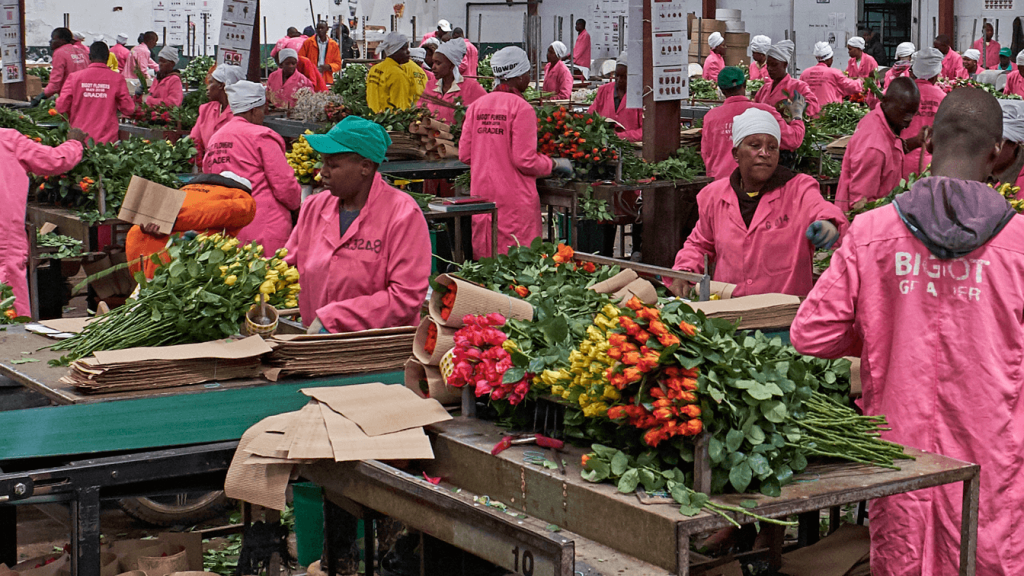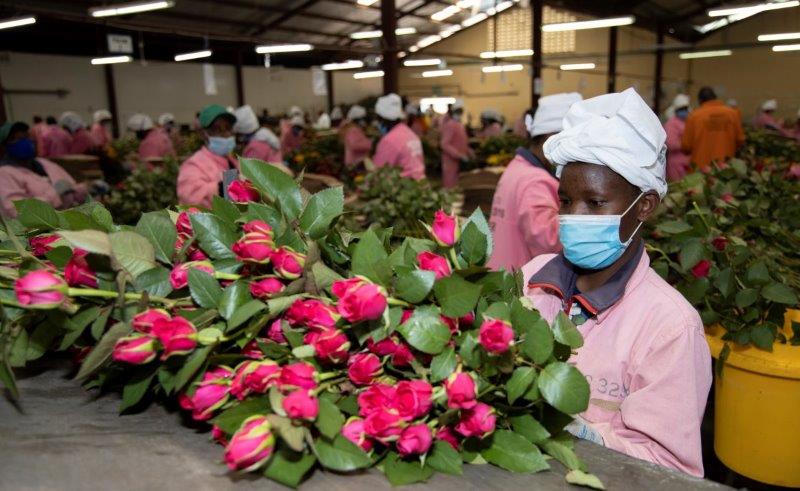

A new study commissioned by the Fairtrade Foundation and carried out by Impactloop reveals the significant economic advantages that flower workers in Kenya gain from the Fairtrade Premium, particularly in the areas of education, healthcare, and housing.
The Fairtrade Premium offers these workers additional funds that they can allocate as they choose to enhance their social, economic, and environmental situations.
According to the report, Fairtrade flower workers in Kenya receive approximately EUR 107 in economic benefits annually from the Fairtrade Premium. This amount encompasses educational subsidies, housing assistance, healthcare, and various in-kind benefits. These economic advantages are especially crucial for women, who typically earn lower wages than their male counterparts. With average salaries hovering around EUR 895 yearly, the Premium aims to support workers who fall short of the living wage standard of EUR 2,808.
The study highlights that Fairtrade Premium payments help alleviate pressure on workers’ wages. Additionally, Fairtrade flower workers can secure loans through the Premium, an often-overlooked aid in living wage discussions, which proves essential for accessing necessities such as education, housing, and household products. For many workers, these loans have become an indispensable lifeline, particularly in the context of rising living costs. When considering loans as part of the Fairtrade Premium, the total additional economic benefit per person annually climbs to EUR 464.
Mahsa Yeganeh, Senior Sustainable Sourcing Manager for Flowers at Fairtrade Foundation, emphasized, “There is an urgent need to ensure living wages in the flower sector. Sourcing flowers under Fairtrade conditions can deliver crucial financial support to flower workers. This study demonstrates how the Fairtrade Premium can serve as a buffer against the challenges of the flower industry. It also underscores the continual need for Fairtrade to assist workers comprehensively by combining essential in-kind and loan-based benefits through the Fairtrade Premium with direct wage enhancements through collective bargaining.”

The study by Impactloop examined the experiences of 76 Fairtrade-certified flower farms in Kenya, focusing on the impact of Premium payments. This research also included insights from three Kenyan flower farms regarding the use of Fairtrade Premium and loans.
One of the most notable findings from the Fairtrade Foundation is the significant impact on education, with 43% of workers benefiting from bursaries and education loans. This assistance helps ensure that workers’ children can pursue secondary and tertiary education, with priority given to orphans and vulnerable children.
The study highlighted substantial healthcare and housing benefits gained from the Premium. Notably, 10% of surveyed workers accessed plot loans, while 35% took advantage of housing item loans, which included clean energy stoves and gas cylinders—predominantly used by women.
Despite the challenges posed by low wages, the study emphasized the crucial role of in-kind benefits for supporting workers, particularly women. Given their lower wages and significant loan repayments, many women favored receiving in-kind payments rather than cash, especially for essentials like household goods and housing improvements. These provisions were often seen as vital for alleviating financial pressures within the household and enhancing overall living conditions.
However, the study also indicated areas for improvement. It recommended ongoing financial education to assist less affluent workers in better managing their loans and maximizing the Fairtrade Premium’s benefits. Additionally, it found that worker satisfaction increased when individuals were actively engaged in decision-making related to the Premium’s usage. Increased training opportunities and greater autonomy for Fairtrade Premium Committees (FPCs) emerged as essential for further development.
The research advocates for continued support for trade unions and worker committees, emphasizing the importance of enhancing workers’ representation in decision-making processes. This approach could foster greater worker satisfaction and productivity, which, in turn, may lead to further advancements in wages and working conditions.
